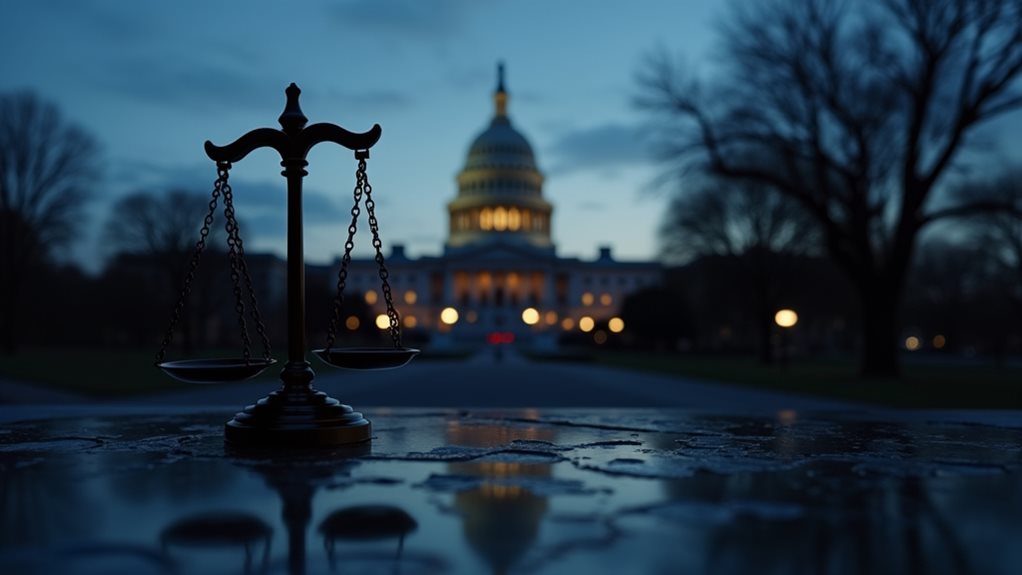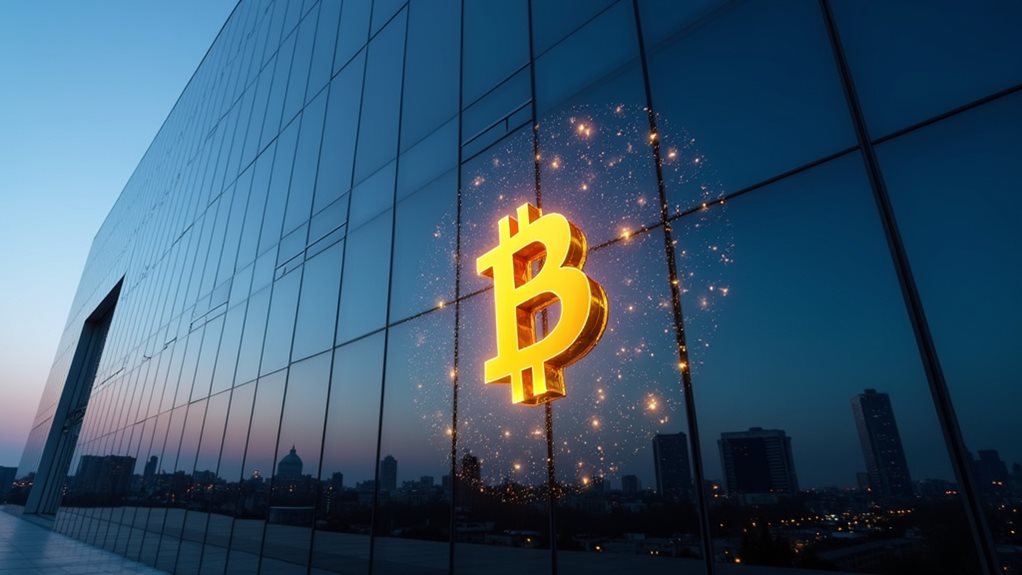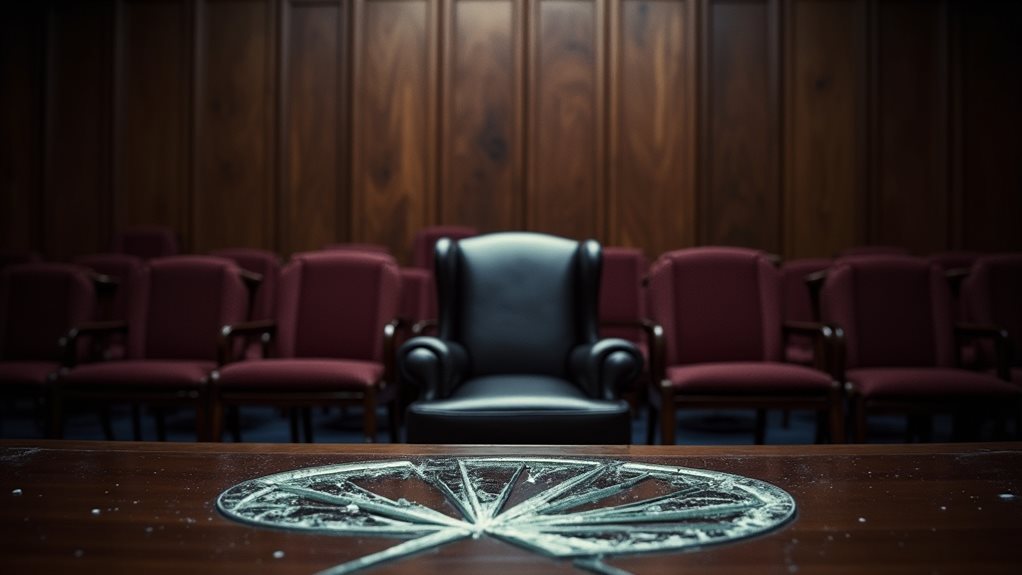The White House’s veto of crypto ethics provisions in the CLARITY Act has Democrats fuming and pushing back with the Stop TRUMP in Crypto Act of 2025. Trump’s dramatic flip from calling bitcoin a “fraud” to hosting $148 million memecoin dinners isn’t exactly subtle. The new legislation targets senior officials and their families, aiming to prevent unfair market advantages in digital assets. Meanwhile, crypto companies remain stuck in regulatory limbo as partisan battles intensify around what officials can actually own and profit from.

While crypto was supposed to revolutionize finance, it’s now creating old-fashioned political scandals. The White House just vetoed ethics provisions in the CLARITY Act that would have prevented senior officials, including the President and Vice President, from diving into crypto businesses. Democrats are crying foul, claiming the veto protects Trump‘s personal crypto investments.
Trump’s crypto flip-flop is pretty spectacular. In 2021, he called bitcoin a fraud that undermines the dollar. Now? He’s hosting private dinners where guests drop $148 million on his custom memecoin. Talk about a change of heart. His inner circle, including his sons and advisors, are neck-deep in various crypto projects. The optics are terrible.
From calling bitcoin a fraud to hosting $148 million memecoin dinners – Trump’s crypto transformation defies all political logic.
The Bitcoin 2025 conference reads like a Trump rally these days, with his allies pushing crypto policies and projects. White House officials insist the Trump family’s crypto activities are totally private and separate from government work. Sure they are. With Hester Peirce’s taskforce now leading regulatory efforts, the industry sees potential for more favorable treatment.
Enter the Stop TRUMP in Crypto Act of 2025. This legislation would bar the President, Vice President, Congress members, and their families from owning controlling interests in digital assets or holding executive positions in crypto firms. The bill specifically targets unfair market advantages and potential corruption. It’s named after concerns about Trump’s memecoin dinner, where the token’s value surged right before the event. Coincidence? Probably not.
The broader crypto market remains a playground for scams targeting retail investors. Market manipulation, consumer fraud, and sanctions evasion are rampant. The technology itself isn’t the problem—it’s the shady business practices wrapped around it.
Regulatory efforts aim to stop harmful schemes without killing blockchain innovation, but good luck with that balance. The CLARITY Act’s future looks rocky due to partisan divisions and links to stalled stablecoin legislation. Meanwhile, crypto regulation debates mirror wider political battles. The regulatory limbo leaves companies struggling to comply with existing ambiguous frameworks. Vice President JD Vance disclosed ownership of over $250,000 in Bitcoin while addressing stablecoin legislation at the conference.
The industry argues that regulation stifles innovation, conveniently ignoring the illicit activities plaguing the space. The ethics debate boils down to this: Should public officials profit from assets they help regulate? Common sense says no. Political reality says this fight is just getting started.









